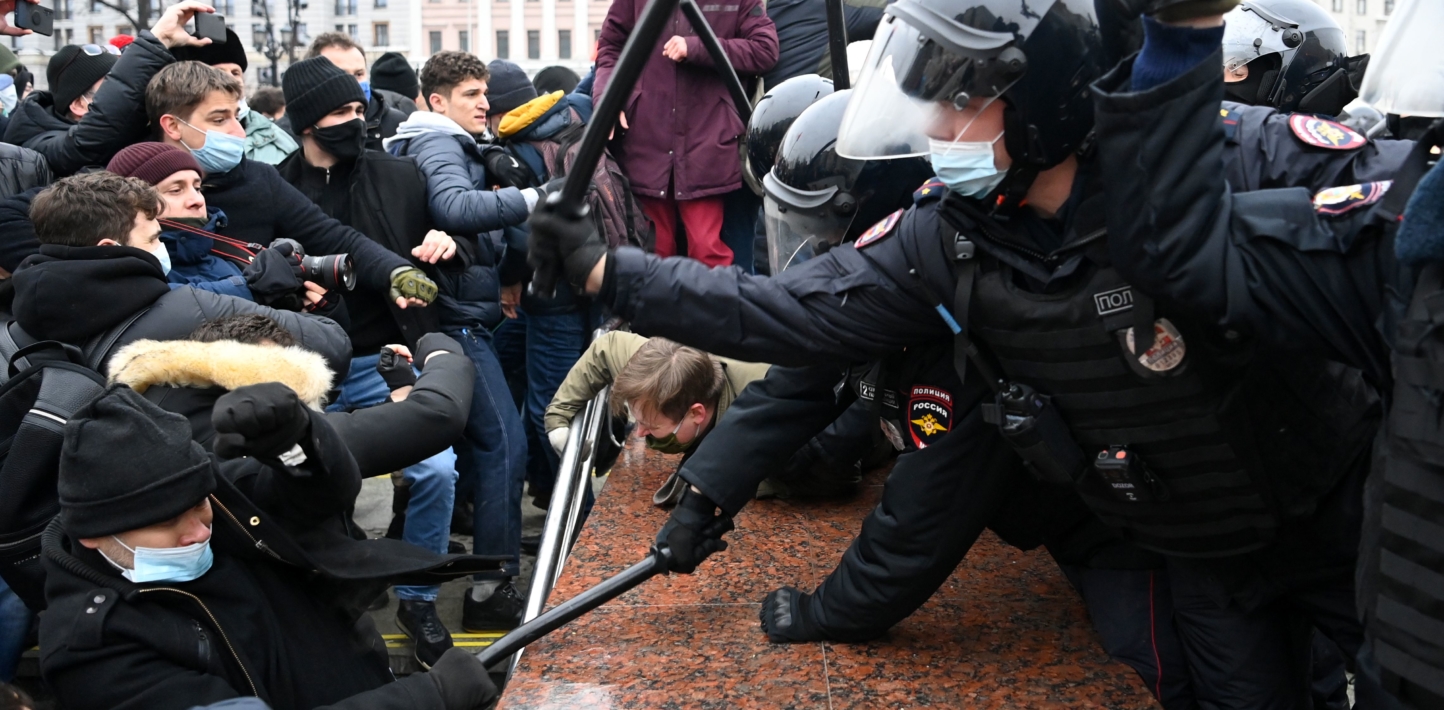A court in Moscow has sentenced opposition activist and Kremlin critic Aleksei Navalny to two years and eight months in a penal colony, amid a brutal crackdown on peaceful protests which saw at least 5,021 people detained on 31 January alone. The Simonovsky District Court granted a motion put forward by the Federal Penitentiary Service to replace Aleksei Navalny’s suspended sentence with jail time, and he will be held at a penal colony.
“In their vendetta against Aleksei Navalny and his supporters, the Russian authorities have shredded any remaining veneer of justice and respect for human rights. The politically motivated sentencing of Alexei Navalny shows the true face of the Russian authorities, who seem intent on locking up anyone who dares to speak out against their abuses and repression of human rights,” said Natalya Zviagina, Amnesty International’s Moscow Office Director.
In their vendetta against Aleksei Navalny and his supporters, the Russian authorities have shredded any remaining veneer of justice and respect for human rights
Natalya Zviagina, Amnesty International’s Moscow Office Director
“Even after years of documenting human rights violations and abuses by the Russian authorities, this latest crackdown stands out for its viciousness and sheer scale. There are now more detainees in Russia than there are prison cells, which means people who have done nothing more than attend peaceful demonstrations are being held incommunicado on overcrowded police buses with inadequate sanitation, and in the face of the risks posed by the COVID-19 pandemic. Today’s court ruling is the latest indication that the Russian authorities are spiraling out of control in their desperation to silence their critics.”
Among the thousands of peaceful protesters detained on 31 January was an Amnesty International staff member, who had attended a demonstration in their private capacity. After being arrested for ‘obstructing road traffic’, the staff member was then held overnight at a police station. They were unable to inform family members of their whereabouts for three hours; after managing to make a brief call to their next of kin, their phone was confiscated. The Amnesty International staff member had no access to a lawyer during their detention at the police station. At the sham “trial” the next day, the judge refused to watch the video of the supposed offence and to question police officers or witnesses of the alleged misdemeanor. The individual was sentenced to ten days of “administrative arrest”. Like many other detainees, they then spent a night on a police bus before being transported in the morning of 2 February to a deportation centre in Sakharovo (70 km from Moscow city centre) which is being used to detain protesters in the absence of prison space. Detainees inside the bus did not have access to adequate food, water or sanitation.
“Even the head of the police station where our colleague was initially held could not tell us where they had been transferred. With so many protesters detained in unknown locations, we are looking at the prospect of mass enforced disappearance,” said Natalya Zviagina.
“Amnesty International considers that the conditions of detention of those deprived of liberty during the overwhelmingly peaceful protests of 31 January amount to torture and other ill-treatment. We call on the international community, including UN special procedures, and national governments to respond immediately to these mass human rights violations and to hold the authorities to account. Aleksei Navalny, his associates, and all peaceful protesters arrested ahead, during and following the rallies on 23 and 31 January, as well as today, are prisoners of conscience and should be immediately and unconditionally released.”
Background
On 2 February, the Simonovsky District Court, conducting its session in the Moscow City Court premises, granted the motion of the Federal Penitentiary Service and replaced Aleksei Navalny’s suspended sentence with two years and eight months of imprisonment.
According to the human rights group OVD-Info, at least 5,021 people were detained throughout the country on 31 January, including more than 1,600 in Moscow and more than 1,100 thousand in St. Petersburg.
Since many of the more than 3,000 people detained during the dispersal of previous protests on 23 January were sentenced to “administrative arrest,” the capacity of detention facilities across Russia, and especially in Moscow, has been severely exceeded.
For further information please contact:
Alexander Artemyev
Media Manager for Eastern Europe and Central Asia
Amnesty International
mob.: +7 917 559 5972
email: [email protected]


